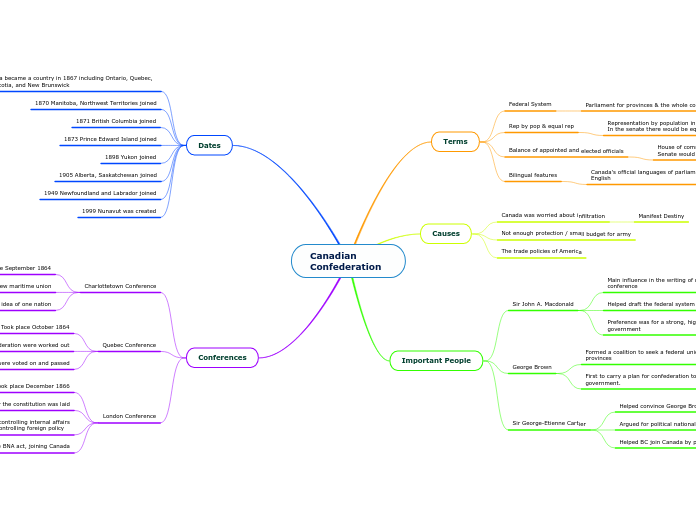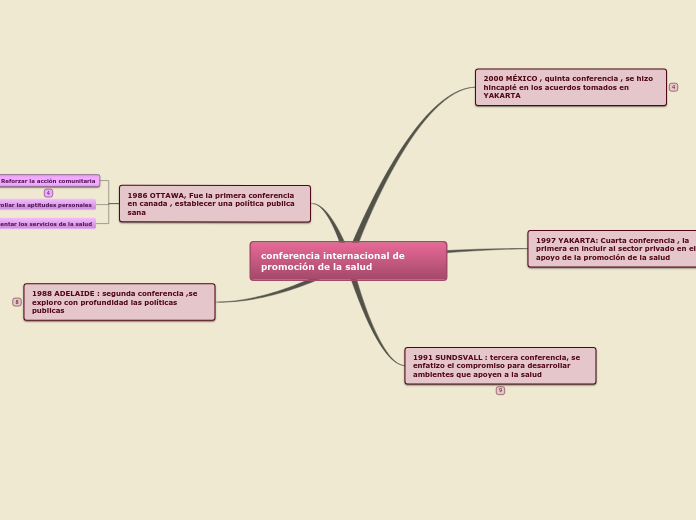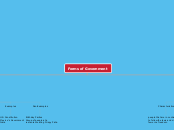Canadian Confederation
In the mid-19th century, a series of pivotal conferences and influential figures laid the groundwork for what would become the Canadian Confederation. The Charlottetown, Quebec, and London Conferences played integral roles in shaping the new nation.
開啟
Canadian Confederation Conferences London Conference Resulted in the BNA act, joining Canada Canada ended up controlling internal affairs
Britain ended up controlling foreign policy The foundation for the constitution was laid Took place December 1866 Quebec Conference 72 resolutions were voted on and passed The rules for confederation were worked out Took place October 1864 Charlottetown Conference The Canadian delegates proposed the idea of one nation Original purpose was to discuss new maritime union Took place September 1864 Dates 1999 Nunavut was created 1949 Newfoundland and Labrador joined 1905 Alberta, Saskatchewan joined 1898 Yukon joined 1873 Prince Edward Island joined 1871 British Columbia joined 1870 Manitoba, Northwest Territories joined Canada became a country in 1867 including Ontario, Quebec, Nov Scotia, and New Brunswick Important People Sir George-Etienne Cartier Helped BC join Canada by promising a transcontinental railway Argued for political nationality at Quebec conference Helped convince George Brown to join the great coalition George Brown First to carry a plan for confederation to the British government. Formed a coalition to seek a federal union of all the British provinces Sir John A. Macdonald Preference was for a strong, highly centralized, unitary form of government Helped draft the federal system for Canada Main influence in the writing of resolutions at Quebec conference Causes The trade policies of America Not enough protection / small budget for army Canada was worried about infiltration Manifest Destiny Terms Bilingual features Canada's official languages of parliament would be French and English Balance of appointed and elected officials House of commons would be elected by voters
Senate would be appointed by the Prime Minister Rep by pop & equal rep Representation by population in the house of commons
In the senate there would be equal representation Federal System Parliament for provinces & the whole country









